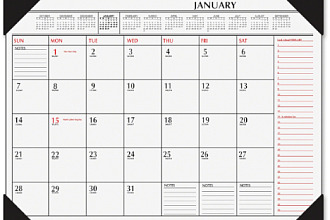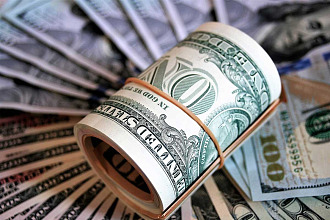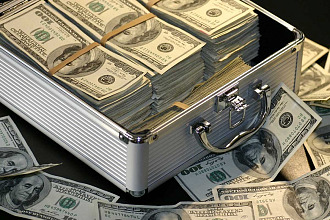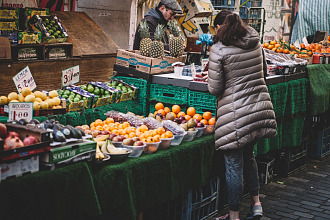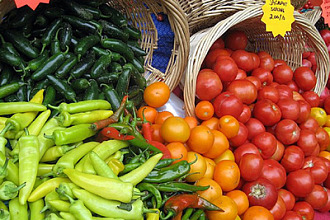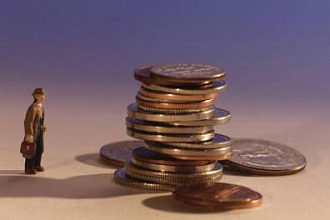If you are like the majority of shoppers, you are feeling the shock of higher grocery prices. You stop at your local supermarket for a couple of basic items and twenty minutes later you leave the store with a $50 receipt along with the feeling of "where did my money go?" and "what did I really spend it on?" During these summer months with ravenous hungry kids and their friends hanging around your refrigerator or invading your kitchen pantry, this could be a good time to work on cutting down your food bills. Here are some suggestions:
Plan More, Shop Less In his book, Why We Buy: The Science of Shopping, Paco Underhill reveals that according to current data, 70 percent of all purchases are unplanned. Retail merchants thrive on this strategy of unplanned purchases. So get in the habit of making a list. Creating a weekly menu complete with what you plan to have for each meal may sound tedious, but when you are focused, your shopping cart will not bulge with items bought on impulse.
Take the time to make a master list of what you purchase. It should include major food categories such as vegetables, fruits, cereals, etc. As needed, include in your master list a section entitled, "other items."1
Patrol the Border Staple items such as bread, fruits, and vegetables—those making up the bulk of your food budget—are usually stocked around the outer perimeter of the store. You can save a bundle by cruising through the perimeter aisles first before tackling the inner aisles that have the more expensive and less healthy canned and pre-packaged goods.2
Find a Peel Deal We know that precut and premixed items can cost up to twice the price of regular produce, hence you can really save by peeling, cutting, and mixing these items in your own kitchen. Make it a family project by having your children assist you with this task.3
Clear Out the Bin Most supermarkets have a bin or cart of clearance items usually past their prime. Some shoppers skip those clearance items because they don't appreciate eating week-old vegetables. It also takes extra time to cut off the withered outer leaves and they're not sure if there's any nutritious value in what's left. However, sometimes you can hit on great deals such as a box of slightly soft tomatoes that can be cooked for a perfect pasta sauce that you have planned in your menu for the week.
Use Coupons One can either be a coupon master that buys over $250 worth of groceries for $25 or a not-now-not ever shopper. You don't have to be an avid couponer to make out like a bandit. If you just cut the coupons that you need and use often, you can save about $20 per $100 of purchases. Preferably, use your coupons on sale items to get the best deal.
Remember the Three-Month Cycle It seems that most supermarkets and drug stores run specials on most items approximately every three months. It behooves families and individuals to purchase enough of their standard items to last at least 90 days, until those same items come back on sale.
Be Aware of Interesting Packaging Being aware of how items are packaged can influence what you buy. Scientists have found that customers are more satisfied with packages that feel heavier than lighter packages with the same amount of content. In one study on chewing gum, published in Food Quality and Preference, researchers found that we tend to associate cool colors with elegance and long-lasting flavors, and warm colors with sensuality and rebelliousness. Red is the top color to nudge you towards impulse buying.4
Forget the Supermarket Sometimes your local supermarket or grocery store isn't the cheapest or the best place to purchase household items. If you're at a gas station or at a pharmacy, check out the sale prices on selected items. I have noticed that milk or bread at drug stores is considerably cheaper than at supermarkets. Retailers such as Target and K-mart, which are great places to purchase appliances, clothing, and specialty items, are now carrying a large basic food selection, and often at much reduced prices. Farmers' markets and local farms are great places to buy inexpensive locally grown produce. If you enjoy ethnic food, pick up your spices, beans, rice, etc. at ethnic outlets inexpensively.5
Watch the Scanners Whether computer-based or the result of human error, your checkout receipt is sometimes more than what you anticipated. Avoid this situation by watching the computer screen as the clerk scans your items and make sure that the savings have been rung-up before you leave.6
Why You May Overspend At any store you go to, all kinds of influences are designed to lure you to overspend.
Plastic Purchases The number one influence to spending more is how you pay at the counter. Using either a debit or a credit card has the biggest impact on your bottom line. It is estimated that you will spend up to a third more when you use plastic over cash. Unfortunately, over 80 percent of all purchases at supermarkets are with credit cards.
Enticing Music Classical music is one of the best therapies for reducing depression and motivating a fitness regimen. Interestingly, it is also a major motivating factor to spending more. Scientists have shown that shoppers are driven to impulse buying when shops play instrumental or classical music.
Bulk Buying Purchasing a case of a particular item will, in most cases, cost less per unit. However, unless you are using this item regularly and in large quantities, it may actually turn out to cost you more. When there is more available we tend to increase our consumption and hence, spend more.
Pricing Tactic Supermarkets advertise "10 for $10" so you will put ten items of that product in your shopping basket rather than the one or two for $1 each that you really need.7
Making a List Make a list and stick to it. You are more likely to purchase only what is on your list if you have it written down. Don't leave home without it.
References:
1 "The Science of Shopping," Debt-Proof Living Magazine, July 2010 pp. 1, 4.
2 Melissa Gotthardt, "Slash Your Food Bill," AARP, January/February 2008, pp. 32-34.
3 Ibid.
4 "Why You Buy," Psychology Today, November/ December 2012, p. 9.
5 Kristen Bergman, "What's Your Grocery Shopping Strategy?" Debt-Proof Living Magazine, April 2008, pp. 10, 11.
6 Melissa Gotthardt, "Slash Your Food Bill," AARP, January/February 2008, pp. 32-34.
7 "Six Reasons We Overspend," Debt-Proof Living Magazine, June 2010.



